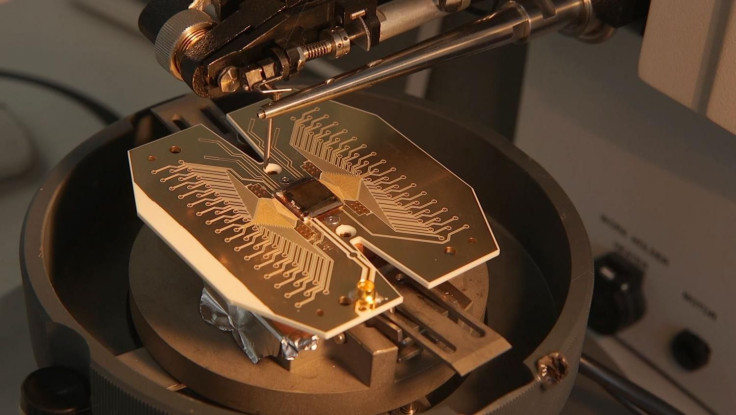Commercially Available Silicon Quantum Computer Moves Forward With Quietest Bits On Record
KEY POINTS
- Physicists achieve a noise level 10 times lower than the previous record
- Demonstration proves to take a major step closer to a full-scale silicon quantum processor
- Next step could be a 10-qubit prototype quantum integrated processor by 2023
The lowest noise level on record for a semiconductor quantum bit has been demonstrated by a team of quantum physicists, bringing the development of a commercially available silicon quantum computer one step forward to possibility.
In a study published in Advanced Materials, the physicists said they were able to achieve a noise level 10 times lower than previously recorded for any semiconductor qubit. Specifically, they demonstrated a low-level charge noise of S0 = 0.0088 ± 0.0004 μeV2 Hz−1.
As a next step, the team is now looking forward to demonstrating the capability required to produce a reliable 10-qubit prototype quantum integrated processor by 2023.
“Our team is now working towards delivering all of these key results on a single device – fast, stable, high fidelity and with long coherence times – moving a major step closer to a full-scale quantum processor in silicon,” Michelle Simmons, director for Center for Quantum Computation and Communication Technology (CQC2T) and Scientia professor of quantum physics in the Faculty of Science at the University of New South Wales, said in a press release.
The team explained that, for a silicon quantum computer to perform reliable and applicable solutions, it should generate quantum information close to 100% accuracy. However, achieving such accuracy was impossible due to what physicists call charge noise.
Imperfections in the material environment that hosts qubits result in charge noise. It impedes the proper encoding of information on qubits, affecting the information accuracy altogether. By separating the qubits from the surface and interface states, the team was able to demonstrate the lowest noise possible using atom qubits in crystalline silicon.
To come up with their demonstration, the team builds upon the results of Simmons’ previous paper published in Physical Review X.
“This (present) research, combined with our lowest charge noise results, shows that it is possible to achieve a 99.99% fidelity in atom qubits in silicon,” Simmons’ acknowledged in the same press release.
According to Harvard Business Review, Quantum computing brings significant benefits to different industries, including healthcare, energy, finance, security and even entertainment. For instance, quantum computers provide encryption that will be impossible for hackers to gain access.
The protection the technology provides will be based on the laws of physics, which are more difficult to decipher than mathematical algorithms.

© Copyright IBTimes 2024. All rights reserved.





















